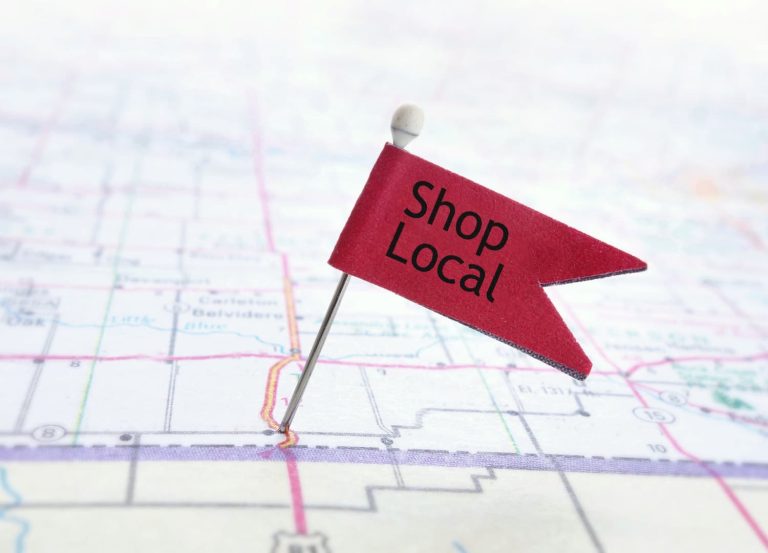There are a few things to consider when it comes to evaluating the environmental impacts of in-person versus online shopping, it’s not as simple as you might think! Online shopping has the potential to be a better choice for the environment, but there are actually several factors that can make online shopping exponentially worse.
What about shopping local. Does it really make a difference?
Learn more below to find out!
in-person shopping
PROS:
- Shopping in person allows you to try on items, inspect, and compare before purchasing, which means you are in a better position to be sure that the item is what you are looking for. This reduces the need for returns.
- You can bring your own bags, avoiding any additional waste.
- In-person stores are more likely to offer package-free options.
- Shopping in-store gives you the benefit of expertise and customer support. Knowledgeable on-site staff can help guide you in making the right purchase, offer recommendations, and more. Getting it right the first time means you are less likely to need to return items later.
- Shopping locally at independent stores is wonderful for the local economy, as a higher percentage of that money cycles back into the local economy through wages, charitable donations, and events – learn more about the benefits of shopping local below.
CONS:
- Standard brick-and-mortar stores have the added environmental footprint of heat and hydro, which need to be maintained to some level, even when closed.
- More people in their vehicles on the road driving to a specific location means more GHGs.

on-line shopping
PROS:
- Choosing regular shipping can be a good option for the environment.
- With regular shipping (and a longer timeline to get orders out) a company can have greater control to minimize environmental impacts. They can reduce the number of boxes used, reduce the number of delivery vehicles (since they can be packed full), and choose the most efficient routes to shorten travel distances.
- Centralized shipping centres can hold a great deal of merchandise in one place efficiently.
CONS:
- Fast Shipping – Expedited and same day shipping make any potential environmental benefits of online shopping disappear. Because of the shortened delivery window, orders may need to go out in separate boxes (more packaging), may be in transit from different locations which creates multiple trips and/or more vehicles on the road (more CO2 emissions).
- Free Returns – Free online returns also make environmental impacts exponentially worse. When extra purchases are made online with the intention of returning unwanted items, the environmental impact of that purchase is doubled. A lot is involved in accepting returns including transit, repackaging, re-inventory, storing, and reselling. During this process, some items inevitably end up in the landfill, and only 50% of returned items are actually resold (extra waste in the landfill).
Making the best of both worlds – our tips for reducing your impact:
- Shop in-store locally for those “tough” items that you need to try on or see in person.
- If you can, visit local stores using public or active transport to reduce your GHGs.
- Bring reusable bags when shopping in-store.
- Choose options that are package-free.
- See if local stores offer local delivery, curb-side pick up, or in-store pick up.
- Say no to same-day or expedited delivery.
- Buy only the items you intend to keep and avoid extras you intend to return.
- Find out about shipping packaging; is it compostable, recyclable, or full of single-use plastics?
- Don’t forget to talk to both local and online businesses about what matters to you – have discussions, send emails, and ask questions.
Remember, each purchase is a vote for the type of world you want to create.

Does shopping locally really make a difference?
When we shop at local independent businesses a greater portion of each dollar is cycled back into the local economy. This includes wages for local employees and businesses supporting local events and charities.
Local businesses are 2.5x more charitable (per each employee) compared to large national chains.
Reduced environmental impact with 26% fewer automobile miles for local shoppers.
90% new net jobs are from local businesses (Sustainable Connection).



